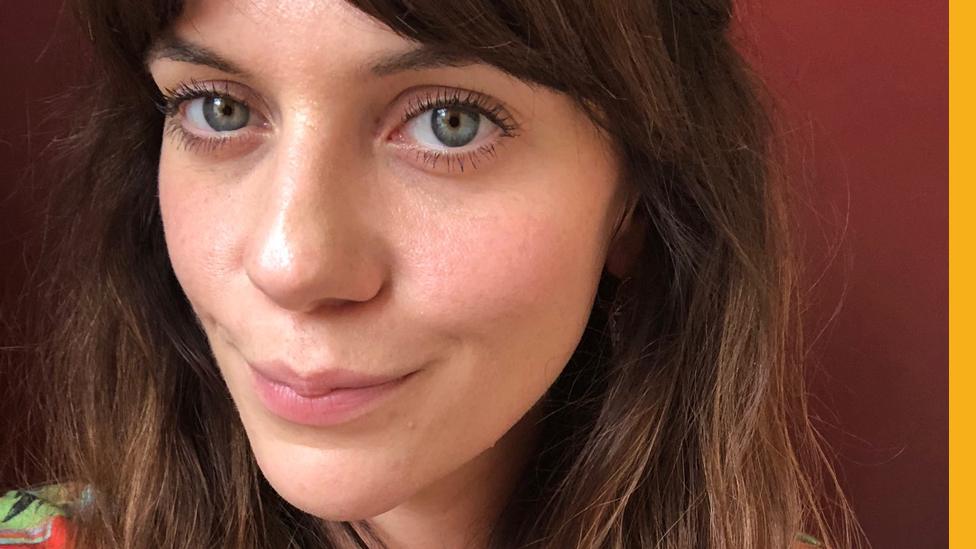What is it like to live without any friends?
- Published
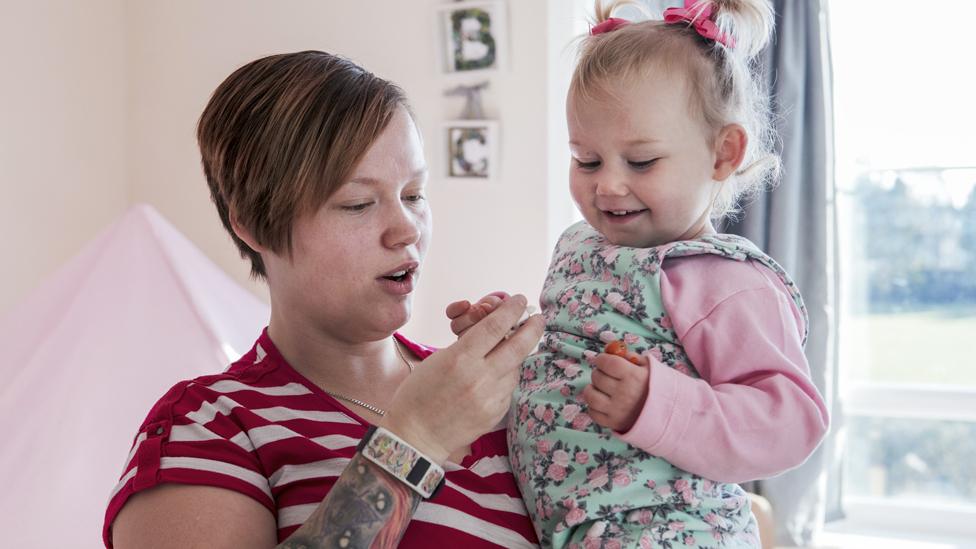
Hazel didn't have any friends for the first three years after moving to a new area
"You learn to rely on yourself and only yourself," says 26-year-old Hazel Newell, reflecting on a period of her life that left her feeling alone, anxious and unable to connect with those around her.
According to new research by the British Red Cross, external, millions of people in the UK are suffering from loneliness and social isolation.
Of the 4,000 adults who made up the study, a fifth said they had no close friends at all.
More than a third said they "often" felt alone, with nobody to talk to.
And while many believe loneliness to be an issue that predominantly affects older people, the research suggests young adults are more likely to experience it.
That's certainly something Hazel can identify with - she says she failed to make a single friend during her first three years living in a new area.
She grew up in Birmingham and London before moving to Blyth, in Northumberland - where her husband is from - when she was 20.
"Everybody told me it was really friendly and it would be easy to make friends, but I struggle socially," Hazel tells the BBC.
"I've always found it difficult - I was bullied severely in my childhood. I was quite different from the rest of my siblings so I never really learnt social interaction as a skill.
"I think it comes naturally to some people but others have to work quite hard to get there, and I was definitely in the latter category."
'Hard to trust'
Hazel was able to speak to her husband about her situation but, she says, it "didn't solve any problems".
"It gets hard to trust people," she says. "It becomes hard to take people at face value.
"You lose the personal connections that make you who you are - and then you lose yourself as well.
"I probably had anxiety throughout most of that time but I never went to the doctor, so it wasn't clear.
"It's very depressing, it's lonely. You end up isolating yourself more than you need to because you're not sure how to do anything about it."
The change eventually came when she realised she was pregnant.
"I wasn't going to let my daughter have the same problems I did," she explains.
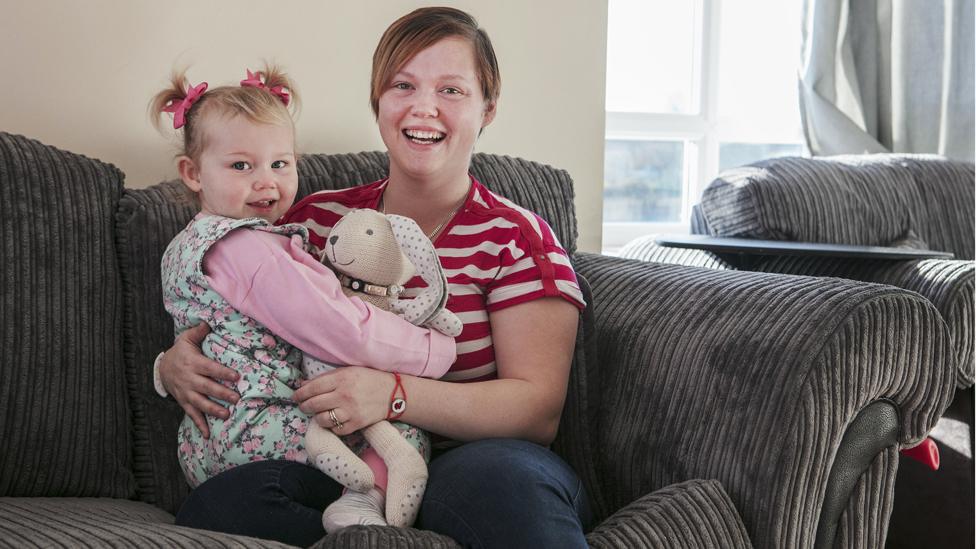
Hazel forced herself to reach out and socialise so her daughter would not have the same problems
"I was about as socially backward as you can be and I was adamant she wasn't going to have that so I started researching different mum and baby groups you can go to."
After searching her community for people with common interests, Hazel says she now has "lots of really good friends" - but admits that only happened because she "learned" to be social.
She now works as a volunteer, helping people who are lonely or isolated connect with the community around them, and she advises anyone in her position to "reach out" through charities.
For Hazel, motherhood was a catalyst to break the cycle of her loneliness - but for others it can be the cause.
Simona Vararniute, 27, moved to Belfast from Lithuania aged 20, and for the first six months, she was happy.
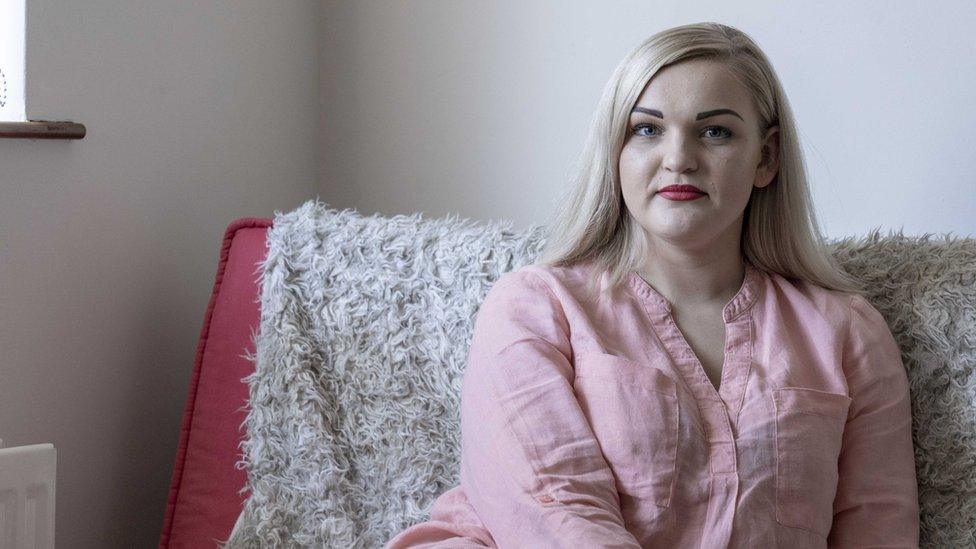
Simona Vararniute found motherhood deeply isolating
"It was the first country I came to on holiday," she says. "I thought I would just come and stay a few weeks and then go home but I liked it.
"I liked the people, they were always smiling, even strangers when you passed them in the city centre they would stop and say hello. You would never find that in my country."
The loneliness, she explains, "came later".
"After half a year or so, you feel that your family is back home but you are here by yourself," she says.
"The people I lived with were friendly but not the kind of friends you trust and tell everything on your mind.
"It was hard."
After her son, Sebastian, was born, life became harder.
'I felt locked in'
While spending time with her son was "amazing", Simona says it was "hard to stay at home all day long".
She moved in with her partner, but he worked from early in the morning until the evening, meaning she only really spent time with him on weekends.
Living in a foreign country - without friends or family - her mental state suffered.
"I felt locked in between four walls", she says. "I just wanted to go away, not sit at home."
Through charities, she was introduced to people in the community who helped her venture out of the house.
"We went to parks, coffee shops, museums," she says, "just have a bit of fun."
Seven years after first moving to Northern Ireland, Simona is in some ways still finding her feet, but she has advice for people who may be in a similar position.
"Don't be afraid or ashamed to ask for help, which is how I felt," she says.
"It doesn't mean you are not capable of doing anything, we are all learning new things every day."
If you are suffering from loneliness or social isolation, you can find support through charities such as the British Red Cross, external, Mind, external and Age UK, external.
- Published7 November 2018
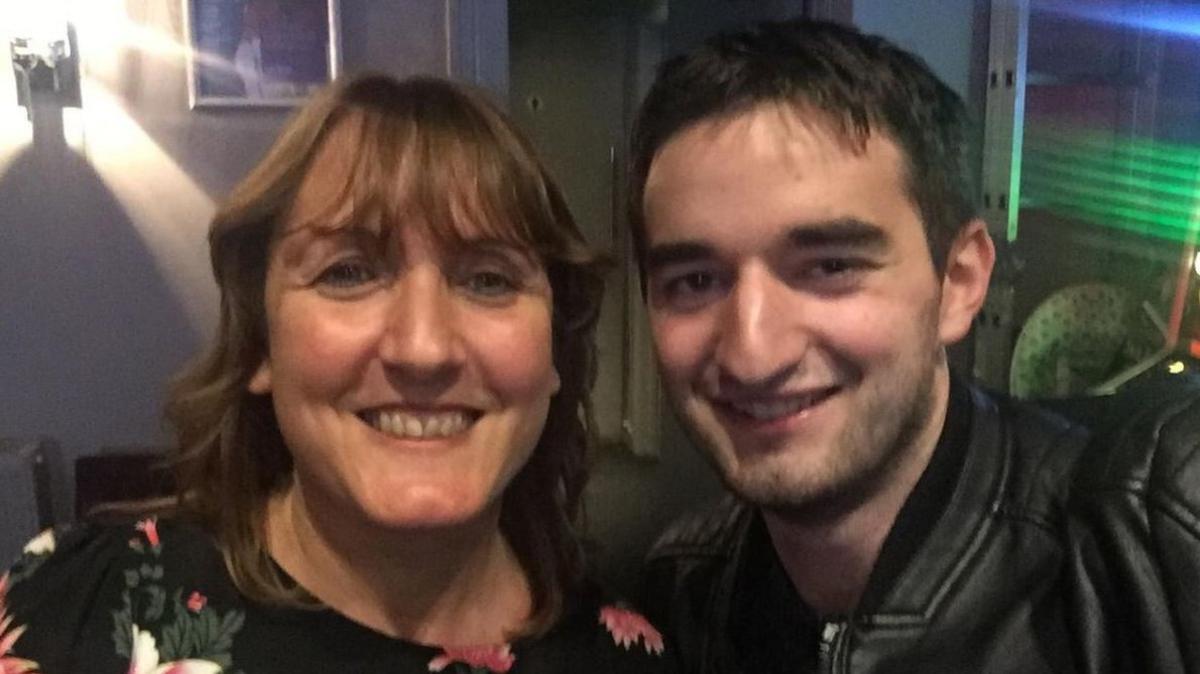
- Published15 October 2018
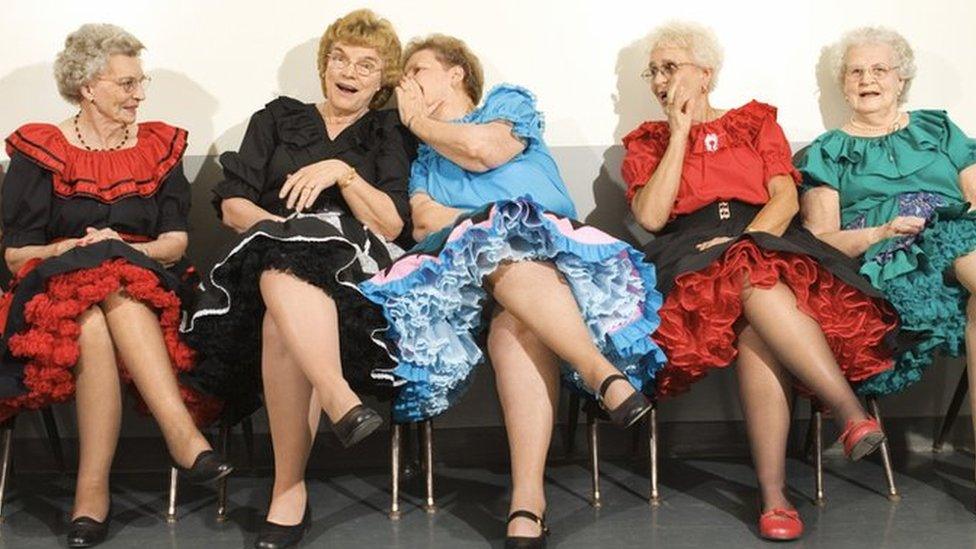
- Published1 October 2018
